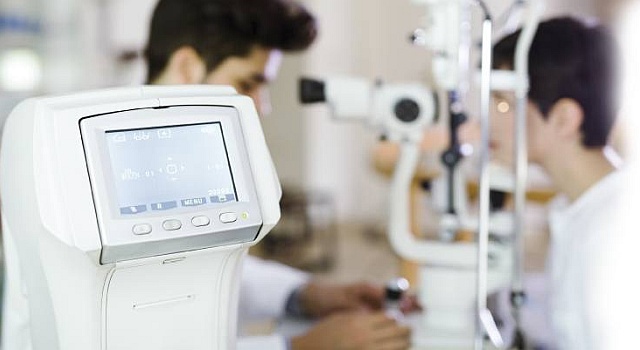When it comes to routine medical visits, include eye exams as well as visits to the family doctor and dentist.
Some individuals hold the misconception that eye exams are only required for people who wear glasses or have an eye disease. However, all people, especially those above the age of 40, should get annual eye exams.
Are people having regular eye exams?
Unfortunately No.
Only 40% of adults that have a high risk of major eye diseases visited their eye doctor for an eye exam (Centers for Disease Control and Prevention, 2017).
These adults were more likely to experience vision loss as a result of diseases like age-related macular degeneration and diabetic macular edema, which can only be detected with a thorough eye exam.
According to a 2016 poll conducted by the American Academy of Ophthalmology, 64% of individuals in the United States suffer from visual symptoms such as blurry vision, poor night vision, double vision, seeing flashes, reading difficulty, and red eyes.
Despite this, only 13% of these individuals had gone to their eye doctor for an eye exam and treatment.
Why you should not skip your next routine eye exam
A full eye exam can discover eye disease in addition to measuring your vision.
Symptoms of several eye diseases may not appear until the problem has progressed, they can go unnoticed for years.
Examples include glaucoma, diabetic retinopathy, and macular degeneration. Unfortunately, by the time the symptoms become noticeable, irreparable vision loss and possibly blindness may have occurred.
Schedule an eye exam with an eye doctor near you, to diagnose any potential vision problems.
SEE RELATED: What to do Before an Eye Exam
Eye exams for children
An eye exam can also reveal vision problems in children, which can often contribute to reading or learning disabilities or behavioral problems, such as ADHD.
Be proactive and protect you and your child’s eye health by undergoing annual comprehensive eye exams. The sooner a visual problem is identified and treated, the better. If you have a family history of vision difficulties, annual eye exams are even more crucial.
Frequent monitoring for adults
Your vision changes as you get older, in both subtle and not-so-subtle ways.
The risks of retinal detachment, diabetic retinopathy, glaucoma, and macular degeneration all increase with age.
When a person is in their 40s, they begin to develop age-related farsightedness, also known as presbyopia, which is a natural part of the aging process. As a result, older people should see their eye doctor more frequently for regular check-ups.
Eye exams can reveal your overall health
Your eyes are windows into your overall health, revealing far more than just eye problems.
By examining the blood vessels in your eyes, an eye doctor may often discover problems such as diabetes or high blood pressure.
An irritated retina could indicate an autoimmune problem; blurred vision could indicate blood sugar fluctuations; and bulging eyes could indicate thyroid disease.
To prevent vision loss, early detection and treatment is key. Don’t wait until your vision changes to visit your optometrist.
LEARN MORE: Guide to Eye Exams
If it’s been a year since your last comprehensive eye exam, schedule an eye exam with an eye doctor near you today!


